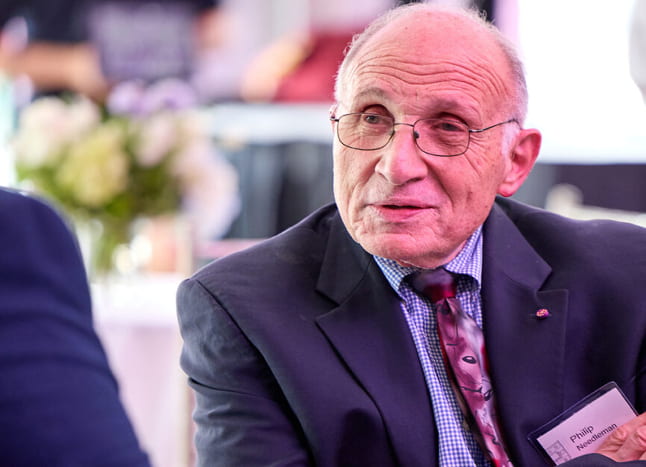Philip Needleman, a Washington University in St. Louis emeritus trustee, longtime benefactor and former department head at the School of Medicine, died in an accident Monday, March 25, 2024, in Creve Coeur, Mo. He was 85.
“Phil was a pioneering pharmacologist, an esteemed faculty member and a generous benefactor whose impact on our university and the world of drug discovery cannot be overstated,” Chancellor Andrew D. Martin said. “His legacy will endure through the countless lives he has touched.”

Needleman’s connection to the university began 60 years ago when he became a postdoctoral fellow at the School of Medicine. He quickly rose to professor and later head of the Department of Pharmacology from 1976-1989, where he developed innovative programs for students and launched a master’s program.
An expert in prostaglandin regulation, Needleman and his colleagues in the School of Medicine made key discoveries in the 1980s about the roles of the COX-1 and COX-2 enzymes that play a key role in pain and inflammation due to arthritis.
In 1989, he became chief scientist at Monsanto, where he led the development of the arthritis medication Celebrex, which blocks the inflammation driven by COX-2. The drug has improved the lives of millions of people worldwide. Later, he served as president of Searle Research and Development and then senior executive vice president after Monsanto merged with Pharmacia & Upjohn.
He remained closely tied to the university during this time, serving on the Board of Trustees beginning in 2002 and the Barnes-Jewish Hospital board. Needleman returned to the School of Medicine in 2004 when he was named associate dean and assisted with BioMed 21, the university’s innovative research initiative designed to speed scientific discovery and to rapidly apply breakthroughs to patient care.
“Phil Needleman will long be remembered as one of the giants of science that walked the halls of Washington University School of Medicine,” said David H. Perlmutter, MD, the George and Carol Bauer Dean of the School of Medicine and executive vice chancellor for medical affairs. “In addition to his accomplishments from his laboratory in the Department of Pharmacology and then in industry, he had enormous impact as a philanthropist and uniquely inspiring mentor. We will dearly miss him every day.”